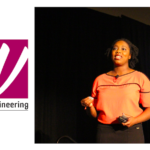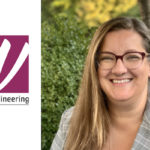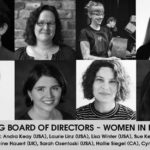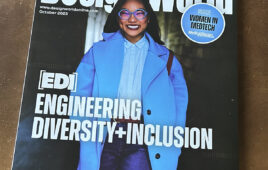Mireya Spears is a product marketing specialist at Emerson. Spears has an MBA and a bachelor’s degree in industrial engineering from the National University of Piura in Peru. When asked about her experiences in engineering, here’s what she had to say.
What about your company’s culture makes it supportive of women?
I’ve always felt that at Emerson we breathe a culture of diversity that promotes equality while advancing personal development. As a woman in a male-dominated field, I’ve never felt like I was left behind due to my gender. I’m assigned important projects, and my male colleagues value the opinions and skills I bring to the team. Emerson has on more than one occasion sought to meet with the women of the office for feedback on how we are supported in our workplace. I was also pleased to discover that Emerson has many programs in place for a female worker such as myself to gain more skills and knowledge to grow in the company. I’m quite passionate about my role as an engineer at Emerson for a variety of reasons:
- I am able to employ and develop my creativity; my ideas and contributions are valued.
- My role offers me the space to work and further develop my skills.
- I’m constantly learning something new; I also have the opportunity to learn from different cultures.
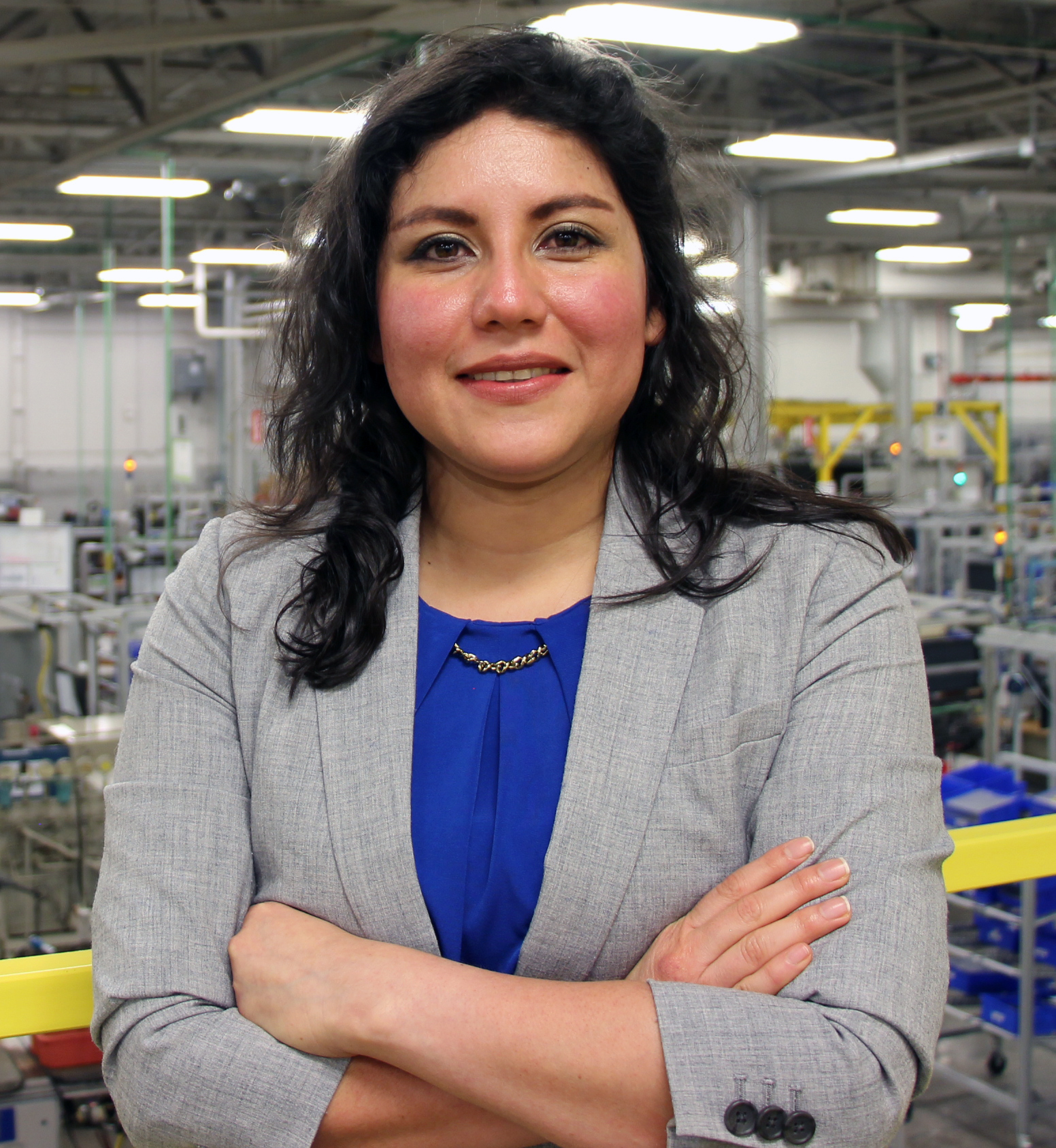
Mireya Spears is a product marketing specialist at Emerson.
What first drew you to engineering?
Growing up, I lived in a home of four women in northern Peru. Besides myself, I had two older sisters and my mother, a divorcée, who is a very godly and hardworking businesswoman. She never demanded we study; rather, we simply knew that attending university would be part of our lives. My oldest sister studied foreign trade; my other sibling chose business administration. Nevertheless, my mother harbored a heartfelt wish that at least one of her three daughters would embark on a medical career. This hope that my mother had seemed to fall upon me as the youngest and the only daughter still in high school.
From a very young age I was drawn to numbers, and I participated in several local and national contests for mathematics. Still, I attempted to give medicine a try. I made a special guided visit to the hospital with my uncle, an orthopedic surgeon, to observe a live operation. After seeing the body opened, that was enough for me. I knew medicine was not my calling! I immediately began searching for career opportunities where mathematics and calculus would play an essential role. My quest led me to study industrial engineering, a career that I believed would fit quite nicely with my natural propensities toward administration since it involves interacting and working with people.
As I started my industrial engineering program in college, looking around my various classes, I realized engineering is a male-dominated profession. I determined then and there that as a woman in the minority. I had to blaze my own trail and prove I could think and work in this field just well as a man. My time in college was a real challenge but fortunately for me, I like challenges!
Anyone shape your decision to become an engineer?
Without a doubt, the two most influential people who shaped my decision to study engineering were my mother and grandfather. Both were professionals managing their own companies — and inspired me to learn about the details of a well-managed business. My grandfather was a mechanic by trade, operating his own industrial fishing-boat repair and service workshop. He was the key figure in bringing electrical energy to the city of Paita in Peru, the site of his shop. Later, he established an automobile service and gas station, which became a permanent icon in the region. My mother’s example (and faith in me) drove me to never give up on my goals. Life is not easy, but she taught me that there are always solutions … even if you can’t immediately see them. I have this same mindset toward my career — treating every setback as an opportunity to leap forward.
What barriers do women face in engineering?
I believe there’s a lingering perception of administrators that women don’t have the temperament to succeed in positions of leadership, so are less likely than men of similar education and work experience to be promoted. For instance, while working on my MBA, I was hired by a company to be an assistant to the CEO even though engineering positions were available. Despite having an industrial engineering degree, I found myself spending most of my day answering phones and preparing coffee. Fortunately, that CEO was replaced a couple of months later by an individual who saw my potential and assigned me to more challenging projects.
Another barrier that women who pursue engineering is the perception that a woman with a young family cannot be adequately devoted to a project or management position. I’m not a mother yet, but I have observed at various times throughout my career that when administrators have a choice between employees with resumés of equal weight, the employee who is not pregnant or has no young children gets the position. It seems that administrators harbor an unfounded fear that women are incapable of managing family and work, and their performance would hinder their team and ultimately the company.
Describe your biggest career challenge.
One of my biggest challenges was immigrating to a different country and adapting to a new way of life … as well as reapplying everything I’d learned in engineering to a different language. I’m grateful for Emerson, which gave me the opportunity to grow through this challenge and learn from their excellent work culture — and for trusting me.
Talk about your leadership skills.
I’ve learned that people have different motivations for doing things. Leaders who identify what motivates team members can change their approach to help everyone give their best. I also believe: If you want to be a leader you must first serve others. I always get better results when I set an example or take the first steps on a project — so then others can feel they’re also part of the team … and are more willing to assume duties. In fact, I like to understand and connect with my team members. As they see me putting forth effort, they trust that I value their contributions — and will support them in their striving to reach individual and team goals.
Have you served as a STEM mentor?
Women in STEM at Emerson encourages diversity and inclusion across the globe, and I’m glad to be part of it … and I’m always excited to promote STEM with young people when I get a chance. My husband is a high school teacher of chemistry and physics, and I strongly support him — giving talks at his school to inspire students to pursue engineering.
How can we increase participation of young women in engineering?
The engineering career stresses the use of reason, logic and mathematics to solve problems where the solution is not easily perceived. To promote this path among young women, I suggest investing in math contests or other fun activities that would encourage this kind of thinking to solve problems throughout life. In addition, school-aged students should be informed about the possibility of a career in engineering and encouraged when they show interest — this point cannot be overemphasized. Finally, whenever possible, the accomplished women of STEM need to serve as role models in elementary, middle, and high schools. If a young girl has never seen a woman as engineer, how could she ever imagine herself as one? Companies should encourage their female engineers and scientists to self-promote by contacting local schools and discussing ways they could be involved in promoting STEM to the young girls on their campuses.
Advice you’d give your younger self?
I would advise my younger self that she doesn’t need to please everybody. I would also tell her that her opinion matters … so she should be decisive, speak up, and trust in her training.
You may also like:
Filed Under: Engineering Diversity & Inclusion



